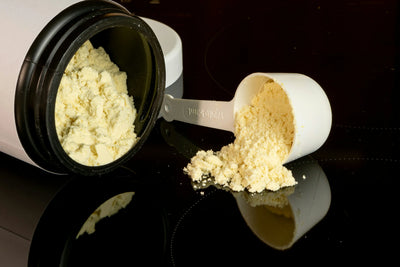Introduction

Understanding Astaxanthin
1.Introduction to Astaxanthin and Its Natural Sources
Astaxanthin is a powerful carotenoid pigment known for its deep red color. It belongs to the group of chemical compounds called xanthophylls. The primary natural sources of astaxanthin include microalgae, krill, and certain types of seafood. Specifically, the microalgae Haematococcus pluvialis is one of the richest sources, producing high concentrations of astaxanthin when stressed by environmental factors such as nutrient deficiency or excessive sunlight. Additionally, astaxanthin is found in significant amounts in krill (e.g., Euphausia superba and Euphausia pacifica) and in the shells of shellfish like shrimp and lobsters. These marine organisms accumulate astaxanthin through their diet, which often includes algae rich in this pigment.
2.Antioxidant Properties of Astaxanthin
Astaxanthin is renowned for its exceptional antioxidant properties. It has a unique molecular structure with an extended conjugated double-bond system that allows it to neutralize a wide range of free radicals. Unlike other antioxidants, astaxanthin can span cell membranes, protecting both the interior and exterior of cells. This makes it particularly effective in reducing oxidative stress and inflammation. In comparison to other well-known antioxidants such as vitamin C and vitamin E, astaxanthin has been shown to be significantly more potent. For example, it is several hundred times more effective than vitamin E in quenching singlet oxygen, a highly reactive form of oxygen that can cause cellular damage.
3.Studies Demonstrating the Effectiveness of Astaxanthin
Numerous studies have demonstrated the effectiveness of astaxanthin in reducing oxidative stress and supporting overall health. One study showed that astaxanthin supplementation significantly reduced markers of oxidative stress in humans, such as malondialdehyde (MDA) and protein carbonyls. Another study found that astaxanthin improved skin health by reducing wrinkles and enhancing skin elasticity, likely due to its antioxidant and anti-inflammatory properties. In the realm of cardiovascular health, research has indicated that astaxanthin can improve lipid profiles and enhance endothelial function, which are crucial for maintaining healthy blood vessels. Additionally, astaxanthin has been shown to support eye health by protecting the retina from oxidative damage and potentially reducing the risk of age-related macular degeneration.
Astaxanthin is a remarkable natural compound with powerful antioxidant properties. Its ability to span cell membranes and neutralize a wide range of free radicals makes it a potent protector against oxidative stress. With natural sources such as microalgae and krill, astaxanthin is readily available for both dietary and supplemental use. The extensive research supporting its health benefits, particularly in reducing oxidative stress, inflammation, and supporting skin, eye, and cardiovascular health, underscores its potential as a valuable addition to a healthy lifestyle.
Benefits for Dogs
1.Boosting the Immune System in Dogs
2.Enhancing Coat Shine and Skin Health
3.Expert Opinions on Astaxanthin for Dogs
Astaxanthin is a valuable supplement for dogs, offering a wide range of health benefits. Its powerful antioxidant properties support the immune system by enhancing the activity of immune cells and reducing oxidative stress. Additionally, astaxanthin promotes coat shine and skin health by reducing inflammation, supporting collagen production, and protecting skin cells from oxidative damage. Experts like Dr. Karen Hecht and Dr. Berg highlight the importance of incorporating high-quality astaxanthin into a dog's diet to support overall health and longevity. By doing so, pet owners can help their dogs maintain a strong immune system, healthy skin, and a vibrant coat, ultimately improving their quality of life.
Challenges and Considerations
1.Challenges in Determining the Appropriate Dosage of Astaxanthin for Dogs
Determining the appropriate dosage of astaxanthin for dogs can be a complex task due to several factors. Firstly, the optimal dosage can vary significantly based on the dog's size, weight, age, and overall health condition. For instance, a small dog may require a much lower dose compared to a larger breed. Additionally, the specific health goals being targeted with astaxanthin supplementation can also influence the dosage. For example, if the goal is to support immune function, the dosage might differ from that required for improving skin and coat health.
Another challenge is the lack of standardized dosing guidelines for pets. While there is extensive research on astaxanthin's benefits and dosages for humans, the data for dogs is relatively limited. This makes it difficult for pet owners to determine the precise amount needed without professional guidance.
2.Importance of Consulting a Veterinarian
Given these complexities, consulting a veterinarian is crucial. A veterinarian can provide personalized recommendations based on the dog's specific needs and health profile. They can also monitor the dog's response to the supplement and adjust the dosage as needed. Dr. Karen Hecht, a renowned veterinarian, emphasizes that "each dog is unique, and what works for one may not work for another. It's essential to have a professional assess the individual needs and potential risks associated with astaxanthin supplementation".

3.Potential Risks and Side Effects of Astaxanthin Supplementation
While astaxanthin is generally considered safe and well-tolerated, there are potential risks and side effects associated with its use in dogs. Some of the common side effects reported include gastrointestinal issues such as stomach discomfort and changes in bowel movements. In some cases, dogs may experience red stool color due to the pigment's presence.
Another potential risk is the interaction with other medications. For instance, astaxanthin may have a blood-thinning effect, which could be problematic for dogs already taking medications that affect blood clotting. Additionally, there is a possibility of altered hormone levels, which might impact dogs with existing hormonal imbalances.
4.Mitigating Risks and Ensuring Safety
To mitigate these risks, it is essential to start with a low dosage and gradually increase it under veterinary supervision. Monitoring the dog for any adverse reactions and adjusting the dosage accordingly can help minimize side effects. Regular check-ups with the veterinarian can also ensure that the supplement is not interfering with other medications or causing any underlying health issues.
5.Importance of Choosing High-Quality Astaxanthin Supplements
The quality of the astaxanthin supplement is another critical factor. High-quality supplements are more likely to be effective and safe. When choosing a supplement, it is important to look for products that are sourced from reputable manufacturers and have undergone third-party testing for purity and potency. Dr. Hecht advises pet owners to "always choose supplements that are specifically formulated for dogs, as human supplements may contain ingredients that are not suitable for pets".
Additionally, the extraction method used to obtain astaxanthin can impact its quality. For example, supplements derived from Haematococcus pluvialis using supercritical fluid extraction are often considered superior due to their high purity and bioavailability.
In conclusion, while astaxanthin offers numerous health benefits for dogs, determining the appropriate dosage and ensuring safety requires careful consideration. Consulting a veterinarian is essential to tailor the dosage to the dog's specific needs and monitor for any potential side effects. Choosing high-quality supplements and being aware of potential risks can further enhance the benefits of astaxanthin supplementation. By taking these steps, pet owners can help their dogs enjoy the health advantages of astaxanthin while minimizing any associated risks.
Success Stories and Practical Experiences
1.Success Stories from Pet Owners
Astaxanthin has gained significant attention among pet owners for its potential to improve the health and well-being of dogs. Many owners have reported remarkable improvements in their pets' health after incorporating astaxanthin into their diet. For example, Sarah, a proud owner of a 10-year-old Golden Retriever named Max, shared her experience: "Max had been struggling with joint pain and mobility issues due to arthritis. After starting him on an astaxanthin supplement, I noticed a significant improvement in his energy levels and mobility within just a few weeks. He's now more active and playful, and his coat looks shinier and healthier."
Another success story comes from John, who owns a senior Labrador named Daisy. John noticed that Daisy's cognitive function seemed to decline with age, but astaxanthin supplementation brought positive changes. "Daisy was becoming less responsive and seemed confused at times. Our vet suggested trying astaxanthin, and it's been a game-changer. She's more alert and engaged, and her overall demeanor has improved."
2.How to Incorporate Astaxanthin into a Dog's Diet
(1)Recommended Brands and Products
When it comes to incorporating astaxanthin into your dog's diet, there are several options available. Natural sources of astaxanthin include wild Pacific salmon, krill, and other seafood. However, for consistent and effective supplementation, pet owners often turn to high-quality supplements.
One highly recommended brand is AstaReal®, which sources its astaxanthin from microalgae grown in a controlled environment. This brand is known for its purity and effectiveness, with extensive research backing its benefits. Another popular choice is NOW Foods, which offers a range of natural astaxanthin supplements specifically formulated for pets.
(2)Operational Advice
To ensure your dog receives the full benefits of astaxanthin, it's important to follow proper dosing guidelines. A general recommendation is to provide one-half teaspoon per 20 lbs of body weight, with the astaxanthin standardized at 0.25 mg per teaspoon. For example, a 40 lb dog would receive one teaspoon, while a 20 lb dog would receive half a teaspoon.
Astaxanthin supplements are available in various forms, including capsules, powders, and liquids. Liquid supplements are often preferred for their ease of use and better absorption. You can mix the liquid supplement with your dog's food to ensure they consume it without issue.
3.Choosing the Right Astaxanthin Supplement for Your Dog
(1)Guidance from Veterinary Experts
When selecting an astaxanthin supplement for your dog, it's crucial to consult with a veterinarian. Dr. Karen Hecht, Scientific Affairs Manager at AstaReal Inc., advises pet owners to look for supplements derived from natural sources like microalgae. She emphasizes the importance of choosing a product that has undergone third-party testing for purity and potency.
Dr. Hecht also highlights the benefits of astaxanthin's unique molecular structure, which allows it to span cell membranes and provide comprehensive protection against oxidative stress. This makes it particularly effective for supporting mitochondrial function, immune health, and overall vitality in dogs.
(2)Key Considerations
Quality and Source: Opt for supplements derived from natural sources like Haematococcus pluvialis microalgae. Avoid synthetic astaxanthin, as its long-term effects are not well understood.
Third-Party Testing: Ensure the product has been tested for purity and potency by a reputable third-party lab.
Formulation: Choose a supplement that is specifically formulated for dogs, as human supplements may contain ingredients that are not suitable for pets.
Dosage: Always follow the recommended dosage guidelines and consult your veterinarian for personalized advice based on your dog's size, age, and health condition.
Astaxanthin has proven to be a valuable supplement for dogs, with numerous success stories demonstrating its benefits in improving health and well-being. By incorporating high-quality astaxanthin supplements into your dog's diet, you can support their immune function, enhance coat and skin health, and promote overall vitality. However, it's essential to choose the right product and follow proper dosing guidelines under the guidance of a veterinarian. With careful consideration and professional advice, astaxanthin can be a powerful addition to your dog's health regimen, helping them enjoy a longer, healthier, and happier life.
Long-Term Health Benefits
1.Potential Long-Term Benefits of Astaxanthin Supplementation for Dogs
Astaxanthin is a powerful antioxidant and anti-inflammatory compound that has gained significant attention for its potential long-term health benefits in dogs. Studies have shown that astaxanthin can extend the lifespan of mammals by up to 12%. This is largely attributed to its ability to reduce oxidative stress and inflammation, which are key drivers of aging and chronic diseases. By neutralizing free radicals and protecting cellular integrity, astaxanthin helps maintain overall health and vitality in dogs.
(1)Improved Longevity and Reduced Risk of Chronic Diseases
Astaxanthin's potent antioxidant properties make it a valuable supplement for supporting longevity and reducing the risk of chronic diseases in dogs. It has been shown to improve heart health by reducing cholesterol levels and enhancing blood flow. Additionally, astaxanthin supports cognitive function by crossing the blood-brain barrier and protecting against age-related cognitive decline. This makes it particularly beneficial for senior dogs who may be at risk for conditions like canine cognitive dysfunction syndrome.
Astaxanthin also offers significant benefits for skin and coat health. It can improve skin elasticity, reduce wrinkles, and protect against UV damage. This is particularly important for dogs that spend a lot of time outdoors. Furthermore, astaxanthin supports eye health by protecting retinal cells and reducing the risk of age-related macular degeneration.
2.Astaxanthin as Part of a Holistic Health Plan for Dogs
Incorporating astaxanthin into a dog's health regimen can be part of a holistic approach that includes diet, exercise, and regular veterinary check-ups. A balanced diet rich in natural antioxidants and nutrients is essential for maintaining overall health. Foods like wild salmon, which is naturally high in astaxanthin, can be a great addition to a dog's diet. However, for consistent and effective supplementation, high-quality astaxanthin supplements are recommended.
(1)Regular Exercise and Veterinary Check-Ups
Regular exercise is another crucial component of a holistic health plan for dogs. Physical activity helps maintain a healthy weight, supports cardiovascular health, and promotes mental well-being. Dr. Karen Hecht, a leading expert in pet health, emphasizes the importance of regular exercise in combination with astaxanthin supplementation. She notes that this combination can significantly enhance a dog's quality of life and longevity.
Regular veterinary check-ups are essential for monitoring a dog's health and catching any potential issues early. A veterinarian can provide personalized advice on diet, exercise, and supplementation based on the dog's specific needs and health status. This ensures that any potential risks or side effects associated with astaxanthin supplementation are minimized.
3.Practical How-To Guidance on Integrating Astaxanthin into a Comprehensive Health Regimen for Dogs
(1)Choosing the Right Astaxanthin Supplement
When selecting an astaxanthin supplement for your dog, it's important to choose a high-quality product. Look for supplements derived from natural sources like Haematococcus pluvialis microalgae, which are known for their purity and effectiveness. Brands like AstaReal® are highly recommended for their standardized potency and third-party testing.
(2)Dosage and Administration
The appropriate dosage of astaxanthin can vary based on your dog's size, age, and health status. A general guideline is to provide one-half teaspoon per 20 lbs of body weight, with the astaxanthin standardized at 0.25 mg per teaspoon. For example, a 40 lb dog would receive one teaspoon, while a 20 lb dog would receive half a teaspoon. It's important to start with the recommended dose and monitor your dog's response, adjusting as needed based on their specific needs and any advice from your veterinarian.
Astaxanthin supplements are available in various forms, including capsules, powders, and liquids. Liquid supplements are often preferred for their ease of use and better absorption. You can mix the liquid supplement with your dog's food to ensure they consume it without issue.
(3)Safety Considerations
Astaxanthin is generally considered safe for dogs, but it's important to monitor your dog for any signs of gastrointestinal upset, particularly when first introducing the supplement. Starting with a lower dose and gradually increasing it can help minimize the risk of digestive issues. If your dog shows any adverse reactions, discontinue use and consult your veterinarian.
Astaxanthin supplementation offers numerous long-term benefits for dogs, including improved longevity, reduced risk of chronic diseases, and enhanced overall health. By incorporating high-quality astaxanthin supplements into a holistic health plan that includes a balanced diet, regular exercise, and veterinary check-ups, pet owners can significantly enhance their dog's quality of life and longevity. Always consult with a veterinarian to ensure the appropriate dosage and to monitor your dog's health throughout the supplementation process.
Conclusion and Future Outlook
1.Recap of Key Benefits of Astaxanthin for Dogs
Astaxanthin is a powerful antioxidant and anti-inflammatory compound that has garnered significant attention for its potential health benefits in dogs. Here are the key benefits of astaxanthin supplementation for dogs:
(1)Immune Support
Astaxanthin enhances the immune system by boosting the activity of immune cells such as natural killer cells and T-cells. This helps dogs fight off infections more effectively and recover more quickly from illnesses. Additionally, astaxanthin's anti-inflammatory properties can reduce chronic inflammation, a common underlying factor in many canine health issues.
(2)Improved Coat Health
Astaxanthin supports skin and coat health by reducing oxidative stress and inflammation. This can lead to a shinier coat and healthier skin, reducing the risk of skin irritations and allergies. By protecting skin cells from oxidative damage, astaxanthin helps maintain the integrity of the skin, which is crucial for overall health.
(3)Overall Well-being
Astaxanthin's potent antioxidant properties help protect cells from oxidative damage, which is a primary contributor to aging and chronic diseases. By supporting cellular integrity and reducing oxidative stress, astaxanthin can enhance a dog's overall vitality and longevity. Additionally, astaxanthin supports heart health by improving blood lipid profiles and reducing the risk of cardiovascular diseases.
2.The Need for More Research
While the existing research on astaxanthin's benefits for dogs is promising, there is still a need for more comprehensive studies to fully understand its potential in pet health. Current studies have shown that astaxanthin can significantly improve immune function, skin health, and overall well-being in dogs. However, more research is needed to explore its long-term effects and optimal dosing strategies for different breeds and health conditions.
3.Integrating Astaxanthin into Your Dog's Health Plan
(1)Consult Your Veterinarian
Before introducing astaxanthin to your dog's regimen, it's crucial to consult with a veterinarian. They can provide personalized advice based on your dog's specific needs, health status, and any existing medical conditions. This ensures that the supplement is safe and effective for your dog.
(2)Choosing the Right Supplement
When selecting an astaxanthin supplement, look for high-quality products derived from natural sources like Haematococcus pluvialis microalgae. Brands like AstaReal® are highly recommended for their purity and effectiveness. Ensure the product has undergone third-party testing for potency and purity to guarantee its quality.
(3)Dosage and Administration
The appropriate dosage of astaxanthin can vary based on your dog's size, age, and health status. A general guideline is to provide one-half teaspoon per 20 lbs of body weight, with the astaxanthin standardized at 0.25 mg per teaspoon. For example, a 40 lb dog would receive one teaspoon, while a 20 lb dog would receive half a teaspoon. Start with the recommended dose and monitor your dog's response, adjusting as needed based on veterinary advice.
(4)Safety Considerations
Astaxanthin is generally considered safe for dogs, but it's important to monitor your dog for any signs of gastrointestinal upset when first introducing the supplement. Starting with a lower dose and gradually increasing it can help minimize the risk of digestive issues. If your dog shows any adverse reactions, discontinue use and consult your veterinarian.
4.Encouraging Exploration of Astaxanthin
Astaxanthin offers numerous potential benefits for dogs, including enhanced immune function, improved coat health, and overall well-being. By incorporating astaxanthin into a comprehensive health plan that includes a balanced diet, regular exercise, and veterinary check-ups, pet owners can significantly enhance their dog's quality of life and longevity.
Encouraging pet owners to explore astaxanthin as part of their dog's health regimen is essential, but it must be done with careful consideration and under the guidance of a veterinarian. This ensures that the supplement is used safely and effectively, maximizing its potential benefits for your furry friend.
Conclusion

-
Consult Your Veterinarian: Before introducing any new supplement, including astaxanthin, to your dog's regimen, consult with a veterinarian. They can provide personalized advice based on your dog's specific needs, health status, and any existing medical conditions.
-
Choose High-Quality Supplements: When selecting an astaxanthin supplement, look for high-quality products derived from natural sources like Haematococcus pluvialis microalgae. Brands like AstaReal® are highly recommended for their purity and effectiveness. Ensure the product has undergone third-party testing for potency and purity to guarantee its quality.
-
Monitor and Adjust: Start with the recommended dosage and monitor your dog's response. Adjust the dosage as needed based on veterinary advice. Be attentive to any signs of gastrointestinal upset or other adverse reactions, and discontinue use if necessary.
-
Holistic Health Plan: Incorporate astaxanthin into a comprehensive health plan that includes a balanced diet, regular exercise, and veterinary check-ups. This holistic approach ensures that your dog receives the best possible care and support for a long, healthy life.
Frequently Asked Questions
Q&A Section
Question 1: What is astaxanthin, and why is it beneficial for dogs?
- Answer: Astaxanthin is a powerful antioxidant derived from algae and krill. It helps reduce inflammation, supports immune health, and improves coat shine in dogs. Its antioxidant properties make it a valuable supplement for overall canine well-being.
Question 2: How can astaxanthin improve my dog’s coat and skin health?
- Answer: Astaxanthin is known for its ability to enhance coat shine and reduce skin inflammation. By reducing oxidative stress, it helps maintain healthy skin and a vibrant coat. Many pet owners report noticeable improvements in their dogs' appearance after using astaxanthin supplements.
Question 3: Is astaxanthin safe for all dogs?
- Answer: Yes, astaxanthin is generally safe for most dogs. However, it's important to consult your veterinarian before starting any new supplement, especially if your dog has pre-existing health conditions or is on other medications. Your vet can recommend the appropriate dosage based on your dog's size and health needs.
Question 4: What are the best sources of astaxanthin for dogs?
- Answer: The best sources of astaxanthin are natural supplements derived from algae or krill. Look for high-quality products that are third-party tested for purity and potency. Some recommended brands include Nordic Naturals and VetriScience.
Question 5: How long does it take to see results with astaxanthin supplements?
- Answer: Results can vary depending on the individual dog, but many pet owners report noticeable improvements within a few weeks. For optimal results, consistency is key. Continue to monitor your dog's health and consult your veterinarian regularly to ensure the supplement is working effectively.
References
1.Chew, B. P., Mathison, B. D., Hayek, M. G., Massimino, S., Reinhart, G. A., Park, J. S., … & others. (2010). Dietary astaxanthin enhances immune response in dogs. Veterinary Immunology and Immunopathology, 140(3–4), 199–206. Retrieved from https://www.sciencedirect.com/science/article/abs/pii/S0165242710004277
2.van der Velden, G. (2021). Natural astaxanthin: how the ‘king of carotenoids’ can upgrade pet food. IQI Trusted Petfood Ingredients. Retrieved from https://img.petfoodindustry.com/files/base/wattglobalmedia/all/document/2021/03/pfi.IQI_white-paper-Astaxanthin.pdf
3.IQI Petfood. (2022). Astaxanthin: a powerhouse antioxidant. Retrieved from https://www.iqi-petfood.com/astaxanthin-a-powerhouse-antioxidant/
4.RehabVet. (n.d.). Astmate for Dogs – Nutraceuticals. Retrieved from https://rehabvet.com/nutraceuticals/
5.Dogs Naturally Magazine. (2023). Astaxanthin for dogs: protect against cancer, joint pain and more. Retrieved from https://www.dogsnaturallymagazine.com/astaxanthin-for-dogs/
6.Dogs Naturally Magazine. (2022). 6 disease-fighting antioxidants for dogs. Retrieved from https://www.dogsnaturallymagazine.com/antioxidants-for-your-dog/
7.Nutraceutical Business Review. (2023). From alga to bowl: astaxanthin supports pet health. Retrieved from https://nutraceuticalbusinessreview.com/from-alga-to-bowl-astaxanthin-supports-pet-health
8.Wikipedia. (2025). Astaxanthin. Retrieved from https://en.wikipedia.org/wiki/Astaxanthin





